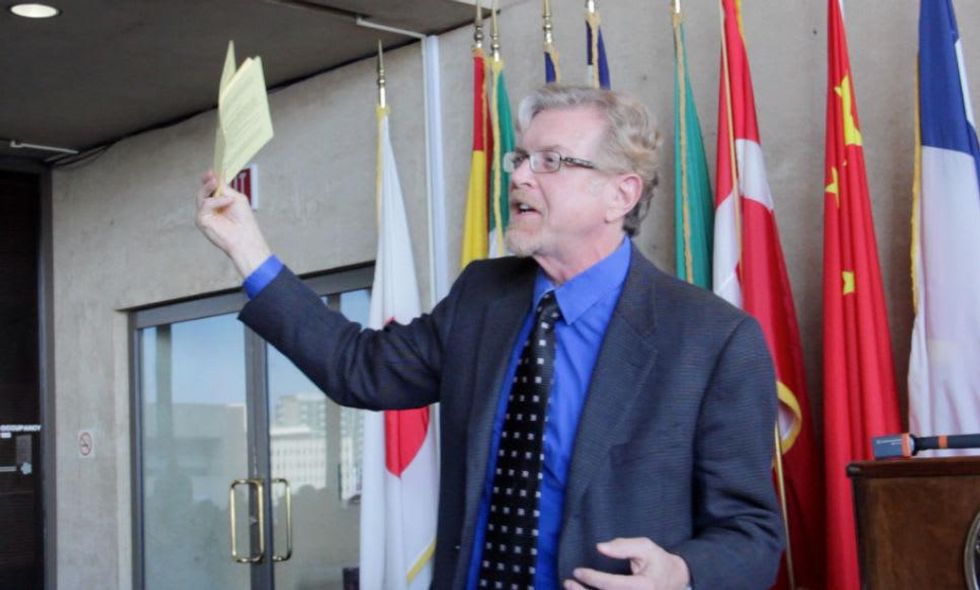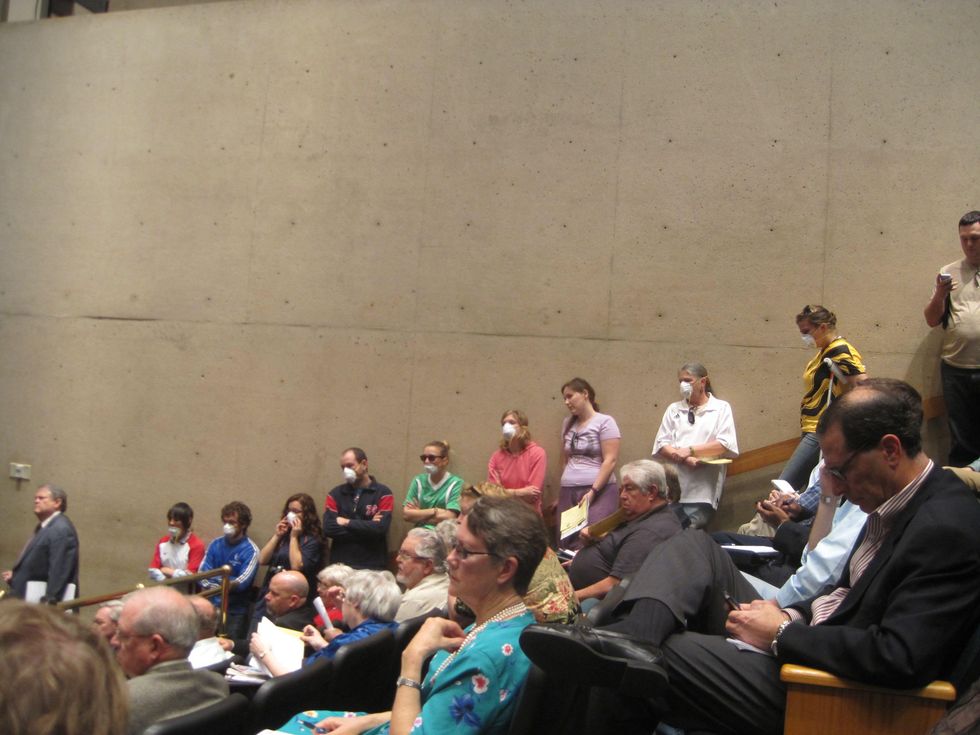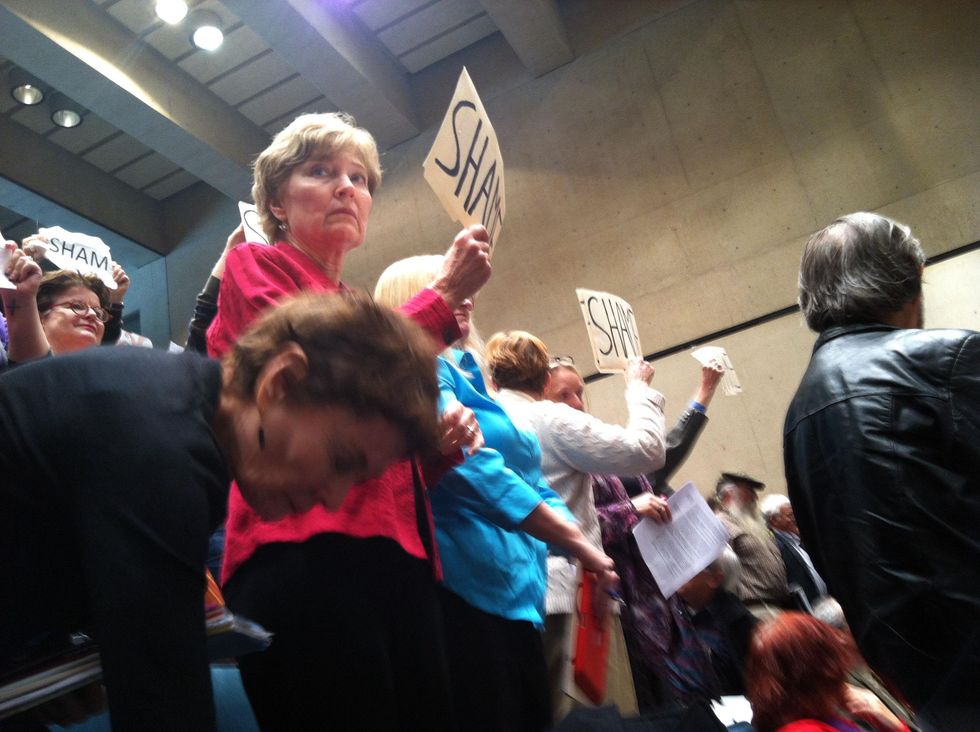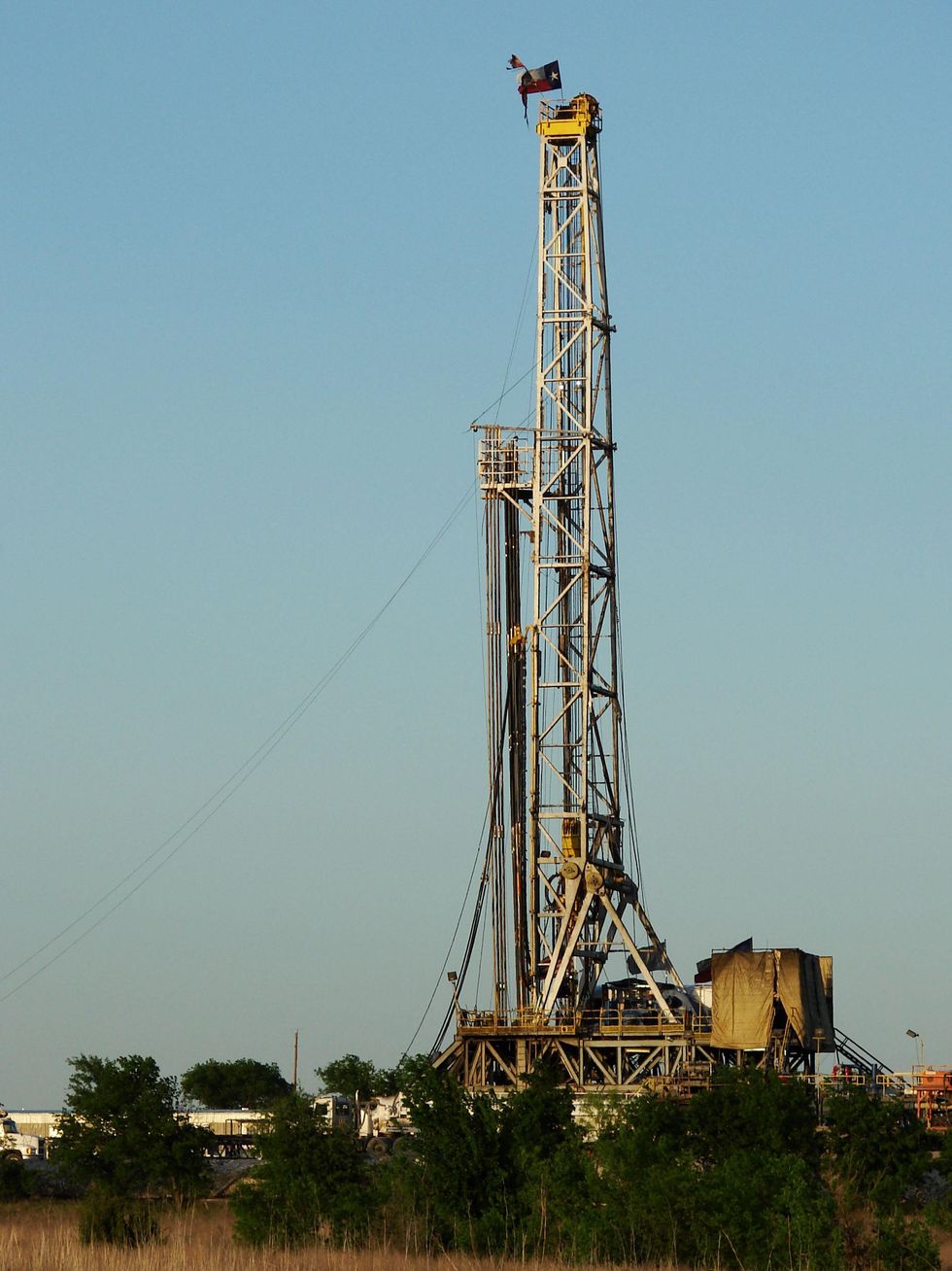Frack Fight
Dallas revisits fracking debate for umpteenth time
For those who've followed the natural gas drilling and hydraulic fracturing debate in Dallas, it's a bit like being stuck in Bill Murray's Groundhog Day. The same issues, often with the same results, fail to push the issue forward in any new or meaningful way.
Dallas residents will have yet another chance to make their voices heard on gas drilling in city limits. At 1:30 pm on August 22, the City Plan Commission will hold a new public hearing on the gas drilling ordinance, this time focusing on the required set back from homes and schools. The commission has previously voiced support for a 1,500-foot setback, which is the longest distance used in North Texas.
In 2008, Trinity East Energy won the rights to purchase Dallas land for the expressed purposes of drilling. But getting down to business has proved quite the ordeal due to city ordinances prohibiting drilling in parklands and in the flood plain. Public outcry over plans to drill in L.B. Houston Park has derailed what Trinity East felt was a done deal. But despite votes in December 2012 and March 2013 that struck down Trinity East's permits to drill, the possibility still remains.
The relative newness of hydraulic fracking has many residents — and scientists — questioning the impact.
If the 1,500-foot setback is enforced at Thursday's meeting, it would prevent drilling in park land, flood plains and recreation areas.
However, city attorney Tammy Palomino and other staff members seem more inclined to a 1,000-foot buffer zone with certain areas requiring only a 500-foot setback. This would allow for the possibility of drilling in parklands and in the flood plain.
After the setback issue is decided, Trinity East's gas permits are at long last slated to go before the City Council on August 28. Since the City Plan Commission twice denied the permits, the council needs a majority of at least 12 out of 15 members to overturn the commission's decision and grant the permits.
Trinity East spokesperson Dallas Cothrum appears shocked by the level of outcry against the permits and the resulting red tape he can't seem to cut through. Before the commission denied gas drilling permits the first time in December, Cothrum called Trinity East's plans "the most stringent agreement in the Barnett Shale."
"We're not doing something here that is unusual or noteworthy," Cothrum said incredulously. "This is very commonly done."
But the relative newness of hydraulic fracking has many residents — and scientists — questioning its impact. The fracking process involves injecting the ground with a high pressure stream of water and chemicals in order to release natural gas that's deep inside the earth.
Scientists at the University of Texas at Arlington recently published a new study of water wells near the Barnett Shale that finds elevated levels of pollution around natural gas extraction sites.
The paper, published in the Environmental Science and Technology journal on July 25, examined 100 water wells in or near the Barnett Shale and focused on the presence of metals such as barium, arsenic, selenium and strontium.
Fracking proponents are quick to point out that these heavy metals often appear naturally in groundwater and are not necessarily due to drilling activities. UTA researchers have said their results warrant further research and are not conclusive at this point.
"There is a lot of science behind gas drilling being safe, but there is danger in everything that we do. Planes can crash; cars have problems and cause accidents," Cothrum said in December, shortly before the city denied Trinity East's drilling permits for the first time.
Those wishing to speak at the August 22 public hearing are advised to arrive by 1 pm to sign up. The City Plan Commission begins at 1:30 pm.




